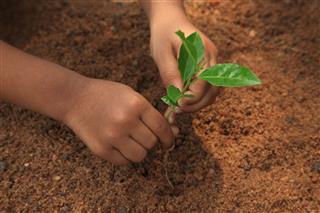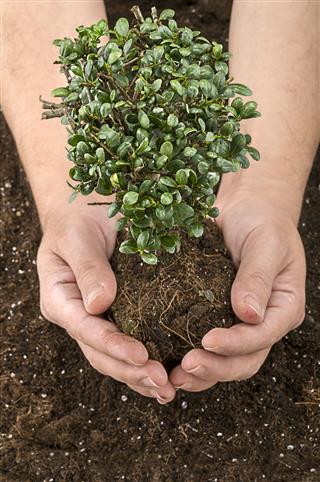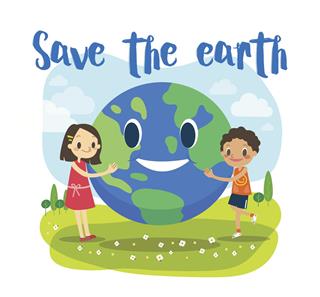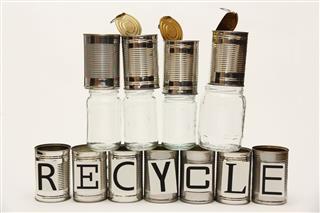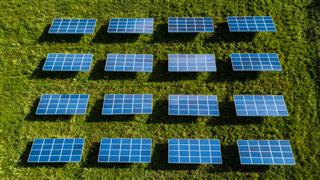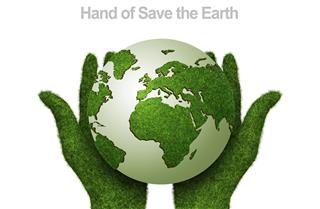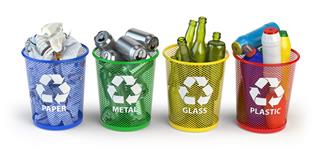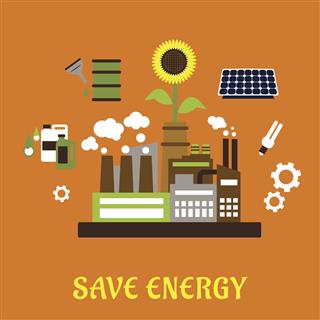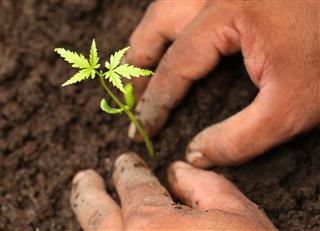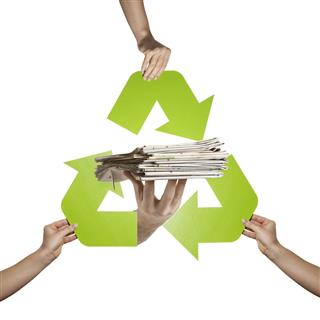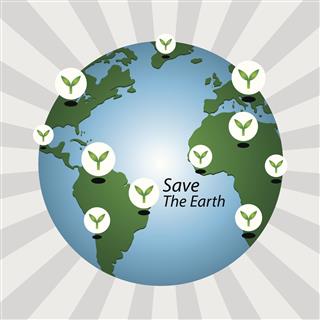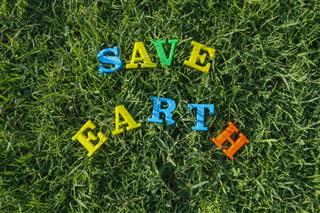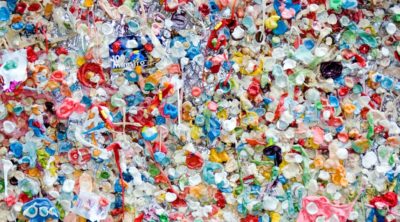
Thinking of ways to save Mother Earth? It’s high time we do, as the planet we live on is suffering. We are extracting all it has – oil, ores, water and more. We are cutting down trees, we are killing animals, we are exploiting nature. Earth’s resources are depleting, posing a threat to human existence on the planet. It’s time we do something to save the planet. Let’s resort to simple ways to save the environment. Here they are.
We talk about saving our environment and how important it is to conserve natural resources. We read about the importance of a healthy environment to survive. Environmental education has made us realize the need to preserve natural wealth. But just knowing and talking doesn’t help. When was the last time you did something towards protecting the environment? Forget doing, when was the last time you even felt like doing something to save nature? We know about the need to save the environment and we often talk about it. But most of us only talk. A very few of us actually do something. Let’s resolve to work towards saving the environment – even a small step counts.
When we think about doing something to save the environment, we think of the depleting natural resources, we think of environmental pollution, deforestation, endangered plant and animal species and we wonder how to contribute to saving nature. We think of these as very big problems and solving them, we think, is beyond our capacity. Big problems – yes, they are. But thinking it’s impossible to solve them is where we go wrong. We hardly bother to do anything in that regard. There are so many simple ways to save the environment. We just don’t pay attention to them. We just don’t think we can do anything or that we should.
Easy Ways to Save the Environment
Plant More Trees
This is easy, you know? Choose an open area/ground near your residence or workplace. Unless there’s any law restricting you from growing trees in that area, go ahead, grow trees. Plant a tree every month, encourage your friends and colleagues to join you. Have more and more trees planted and there will come a day when you have a green stretch of land, thanks to your effort.
Walk more, drive less
Now that’s not very difficult, is it? Choose to walk short distances instead of taking your car every time. Go walking to the gym, to work (if it’s not very far), go walking to run errands. Or use a bicycle. Both cycling and walking are good exercises. And each time you avoid using your car, you are contributing to reducing air pollution. You are saving fuel, saving money and getting a good workout too. Now isn’t that beneficial for both you and the environment?
Maintain your vehicles
Maintain your vehicles in good condition. It may not be possible to go cycling or walking everywhere. To some distances, there’s no other option but your car. But how about at least maintaining it in good condition? Give your car a regular servicing. Clean the exhaust pipes. Check for pollutants emitted. Check air pressure in tires as under-inflated tires lead to greater fuel consumption. Maintain the air filter and fuel injection pump in good condition. Check engine oil levels regularly. Consider getting a catalytic converter fitted in your vehicle. This way you are curbing air pollution.
Choose eco-friendly modes of transport.
Change the way you drive
Do not drive in low gear. It consumes more fuel that way. Do not accelerate and brake very often. More fuel is exhausted this way. When you stop at a signal, turn the ignition off. Take the shortest route to the venue, you are saving fuel and thereby reducing air pollution this way. Share a car whenever possible. Four people going to the same place at the same time, in four different cars – doesn’t make sense. Pool a car whenever you can. Don’t honk when it’s not necessary to. You are adding to noise pollution that way.
Save water
Water is a very important natural resource. It’s we who waste it, pollute it. The simplest ways to save water – turn off the water taps after use. Use of flushes and showers can lead to wastage of water. Use only as much water as necessary. Do not dump garbage down a storm drain. When you visit a beach, see that you don’t spill food or dump waste around. Do not pollute rivers by dumping garbage, sewage or other waste material in them. This pollutes water bodies. There are laws prohibiting you from doing this. But then it has to come from within – the awareness and the awakening. Water is so precious, we can’t waste or pollute it.
Use CFC-free products
CFCs are released from aerosol sprays, air conditioning systems and refrigerators. Some cosmetic products too, contain CFCs. Some countries have already banned the use of CFC products. CFCs contribute to ozone depletion and greenhouse effect. Using CFC-free products is the simplest way to prevent the harm they cause to the environment.
Save Energy
There are so many electrical gadgets you must be using daily – the air conditioner, heater, refrigerator and oven among many more. Then, there are lights and fans. Do you maintain the appliances in good condition? Do you keep a check on their power consumption? Replace the air filters for your air conditioning unit once a month. Turn off the AC when not in use. Refrigerators and water heaters consume a lot of power. So use them scrupulously. Switch off the lights and fans in your room before leaving it. Make sure the electrical appliances are not left on (unless necessary), when leaving the house. Make it a point to switch off the television set or music system after use. Don’t keep them on when there’s no one using them. Your computer is one of the most used gadgets in the house. Do not keep it switched on when no one’s using it. Now weren’t these very simple ways of saving the environment?
Resort to reduce, recycle, and reuse.
Recycle and Reuse
Recycle and reuse – whatever and whenever you can. This is the best measure to save the environment. A simple way to do this is to reduce the use of rubber and plastic. Instead, use paper bags and cardboard containers. The practice of buying in bulk can help save a lot of packaging material and contribute to saving the environment. Buy products that you can reuse. You can reuse daily-use items like old wood, scrap paper to make wood and paper articles and old clothes (you can donate them to the needy or make other cloth items from them).
Use alternative energy sources. Save power.
Harness Renewable Energy
Use renewable sources of energy as much as possible. Resort to the use of renewable sources like solar, wind and hydro power. Start from your own house. Get a solar panel installed and start using solar power for water and room heaters. Small wind turbines are available for home use. Resort to their use for power generation. Even geothermal and ground source heat pumps are available for household use. The added benefit of harnessing alternative energy sources is that the Government offers you incentives for that.
Change habits
Some simple habits at the workplace can let you contribute towards saving the environment. When in office, print only when it is absolutely necessary to. Printing every soft copy leads to heavy wastage of paper. Use emails instead of paper for correspondence. Remember to switch your computer off when leaving for the day. Don’t keep the computer monitor on when you are away from the desk. Do not keep the lights of your cabin/office on when you are away. Avoid overuse of air conditioners. Do not use disposable plastic cups and plates when you have the option of using ceramic.
“The continued existence of wildlife and wilderness is important to the quality of life of humans.” – Jim Fowler
Save Animals
Minimize the use of animal products. Animal fur and ivory are excessively used animal products. Animals are poached for their skin. They are used in scientific research. Animals are being killed in large numbers and are under the threat of extinction. Resolve not to hunt animals. Discourage those who do so for amusement. Discourage animal poaching. Make yourself and those around you, aware of the effects of animal extinction. Do your bit towards saving them. Donate to animal welfare schemes, work for animal shelters, adopt pets only if you are going to be able to take good care of them.
Increase public awareness about environmental problems.
Go green when gardening or farming
Activities like composting can be of great help in recycling garbage into useful manures. Avoid excessive use of chemical fertilizers and synthetic nutrients. Natural manures are a better option for farms and gardens. Go for vermicomposting. Vermicompost makes a very good organic fertilizer. Instead of dumping rotten vegetables, leftover food, eggshells, teabags, vegetable stalks and fruit rinds in the garbage bin, use them to make organic manure for your garden. Replace lawns with bushes and trees. If you live in an area where there’s scarcity of water, use drought-tolerant plants in the garden. This will help you save water. Using non-native plants disrupts the ecological balance. Don’t use them just because they are exotic. Avoid using chemical pesticides for plants. Instead, turn to home remedies or other eco-friendly ways of maintaining your garden. You can consider rainwater harvesting in your locality if you live in an area which receives decent rainfall.
Create Awareness
This is one way in which anyone of us can help save the environment. Read up and encourage those around you to read about the importance of saving nature. Put up posters or banners in the neighborhood, in your school, college or place of work. Organize an environmental awareness campaign. Get t-shirts or caps made with environmental awareness slogans written. Have everyone in your locality, class, school or workplace wear them and spread the word. These things help create an awakening in the masses about how grave environmental problems are and what we can do to solve them. Organize small activities like planting trees, cleaning an area in the locality, visiting an animal shelter or volunteer for an organization which works towards creating environmental awareness. Seek prior permission from concerned authorities for doing any of these things.







